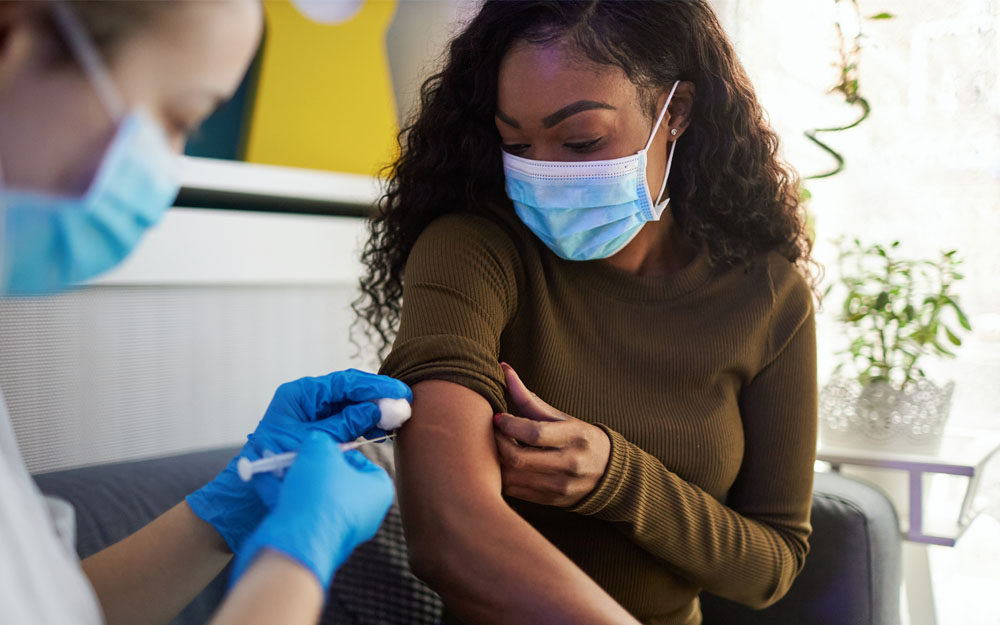As coronavirus vaccines trickle into some of the poorest countries in Asia, Africa and the Middle East, data suggest some women are constantly missing out, in another illustration of how the boluses are being inversely distributed around the world.
Experts say women in Africa may be the least vaccinated population encyclopedically, thanks in large part to wide misinformation and vaccine dubitation across the mainland. But vaccine access issues and gender inequality reach far beyond Africa, with women in impoverished communities worldwide facing obstacles including artistic prejudices, lack of technology, and vaccine prioritisation lists that did not include them.
And while global data by gender in vaccine distribution is lacking in numerous places, officers agree that women are easily being left behind men in some places, and that the issue must be addressed for the world to move past the epidemic.
Still, they will come indeed more marginalised,” said Clare Wenham, “ If women don’t get vaccinated at the same rates as men.
“ This will just be one further case where they’re barred from society.” Whether women had early access to vaccines was frequently determined by how countries gave out their first boluses.
Sarah Hawkes, who runs a global shamus of coronavirus information by coitus at University College London, noted that Pakistan and other countries prioritized groups similar as the military and migratory workers, likely contributing to continued gender gaps.
In deeply conservative and impoverished corridor of India and Timor-Leste, women have entered only about 35 of vaccines, according to early numbers collected by governments andnon-governmental groups.
In Lebanon, as in important of the Middle East, women were originally shielded from COVID-19 because they were more likely to follow social distancing guidelines, saidDr. Sasha Fahme, a women’s health experimenter at the American University in Beirut.
“ But as the transmission patterns changed over time, we saw that because women are disproportionately assigned with domestic housework and acting as caregivers for sick cousins, their viral exposure increased extensively,” Fahme said.
She also noted that women were less likely to have dependable vaccine information because of lower knowledge situations. Naima Sadaka, a 36- time-old mama of three in the southern Lebanese megacity of Sidon, said she didn’t consider getting immunized because she believed there were scientific controversies about the vaccines.
Multitudinous studies have proved all COVID-19 shots authorized by theU.S. and Europe dramatically cut the threat of hospitalization and death. “ I heard numerous croakers say the vaccine is unsafe in the long- term,” Sadaka said.
“Since there are dissensions among the people of wisdom over it, so, better without it.”
In Bangladesh, an original reliance on technology to get invested may have put women at a disadvantage in early stages. Government- reported data frommid-September show that while 8 million men had entered their alternate cure of a COVID-19 vaccine, only 6 million women had. Numbers from the former month showed women were getting about 38 of coronavirus shots.
Ramesh Singh, Bangladesh director for the charity CARE, said he was originally thwarted by the gender gap. But after working on COVID-19 measures in some of the country’s apparel manufactories, Singh noticed that utmost of the workers were women.
“The garment assiduity has been open all this time throughout the epidemic,” he said. “That would feel to put women at advanced threat because they are exposed, but they weren’t getting enough protection.” Singh also said that when Bangladesh began vaccination sweats, enrollment was substantially through a mobile app, ruling out numerous women who do not own cellphones.
Although enrollment has now been expanded beyond the app, some women from pastoral areas still face regulatory hurdles.
Aktara Begum, 22, from a northern quarter of Bangladesh, has been living in Dhaka with her hubby since getting wedded but doesn’t have the needed documents to register for immunization. “To collect my papers, we must go to my vill,” she said.
“But my hubby is jobless, we cannot go home now. I’m not sure if I can get my papers and get vaccinated.”
Officers prognosticate that evening out the gender gap in poor countries may depend on a crucial group of women health care workers, who make up 70 of the global health pool. Former checks have shown women tend to be more skeptical of vaccines than men worldwide, with health care workers are proving no exception.
Chioma Nwakanma, a reproductive and sexual health croaker who works in Lagos, Nigeria’s largest megacity, said she has been frustrated to hear nursers de-emphasize the significance of vaccines.
“There’s a decoration on having children then, so if there’s any mistrustfulness about the vaccine’s effect on fertility, women just suppose it’s not worth it to take indeed a small threat,” Nwakanma said. “And if womanish health workers aren’t confident in the vaccine, also why would the women take it?”

